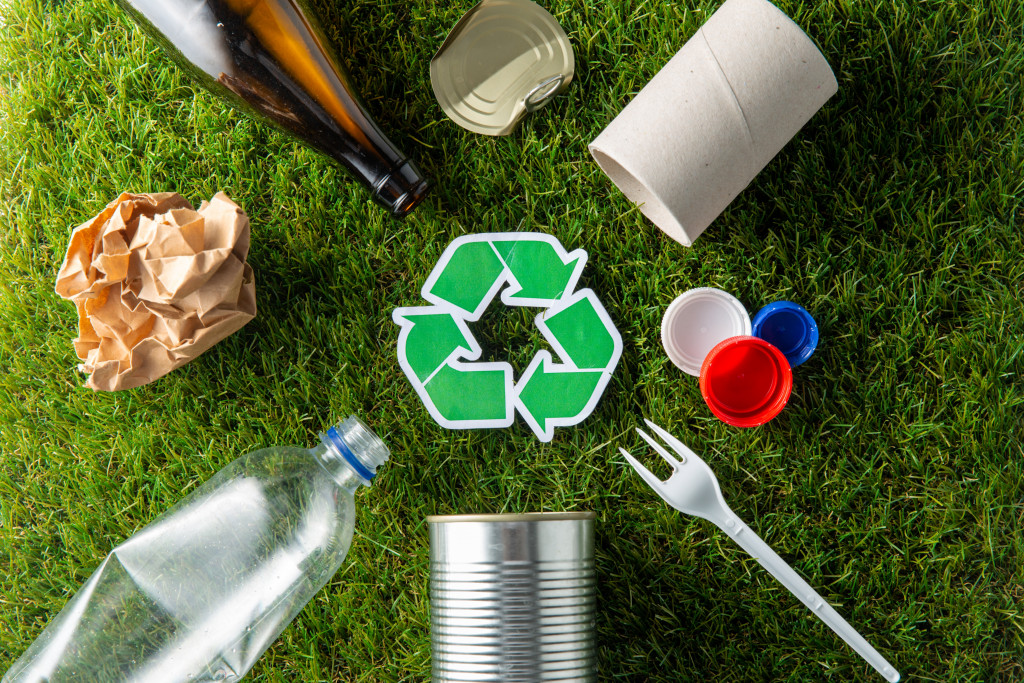• Educating citizens on the importance of proper waste disposal and its environmental impacts can encourage better decisions.
• Government regulations are necessary to create a culture that prioritizes eco-friendly practices.
• Community partnerships are another way to spread awareness and connect citizens with resources.
• By organizing volunteer programs, governments can help foster a culture that values sustainability.
Waste management is critical to creating safe, healthy, and sustainable communities. Everyone has a role to play in waste management, from individuals to businesses to government offices. But how can you build an effective system that encourages responsible waste disposal while reducing your collective environmental footprint? Here’s a look at some methods for promoting safe and sustainable waste management across all levels of society.
Education and Awareness
Knowledge is power, and understanding the importance of proper waste disposal is key to encouraging communities to adopt better practices when it comes to their garbage. Educating people on the environmental and public health impacts of improper waste disposal can create more conscious consumers who are encouraged to make better decisions about how they handle their trash. Here are some ways to do this:
Educate Children In School:
Kids can be powerful agents of change, and teaching them about the importance of waste management from a young age can help to create a more sustainable future. With initiatives like zero-waste lunchrooms and upcycling programs, schools can show kids how their individual choices have an environmental impact.
Develop Public Outreach Campaigns:
Whether through social media, print materials, or public events, launching a comprehensive outreach campaign can help spread the message about why proper waste management is so important. Taking this approach allows you to target specific audiences with tailored messages that are more likely to resonate and lead to real change.
Encourage Businesses to Share Educational Materials:
Businesses can also promote safe and sustainable waste management by sharing educational materials with employees, customers, and vendors. This could include providing information on best practices for managing waste or offering guidance on properly recycling or disposing of certain items.

Government Regulations
In addition to educating citizens on proper waste management techniques, governments must enforce regulations promoting safe disposal practices. Government regulations are important in creating a culture that prioritizes eco-friendly practices. Without them, many people would be unaware or unconcerned about their behavior’s effects on the environment. Here are some strategies to employ:
Create Policies and Regulations:
By creating industry-specific regulations and policies that promote sustainable waste management, governments can ensure that everyone is held accountable for following proper disposal practices. This could include enforcing penalties for non-compliance or providing incentives for businesses to adopt greener waste management methods.
Incentivize Recycling Programs:
Encouraging businesses and individuals to participate in recycling programs can be a great way to reduce the amount of waste that ends up in landfills. By providing incentives like tax credits or subsidies for companies that implement these initiatives, governments can encourage more people to adopt eco-friendly practices when it comes to their garbage.
Create Community Routines:
Creating community-wide waste management practices can help ensure that everyone is doing their part. This could include investing in affordable roll-off dumpsters to be used for weekly curbside pickup for recyclables, compost bins for organic materials, or regular cleanups of public areas. By creating routines and systems like these, governments can help to create a culture of responsible waste disposal.

Community Partnerships
While education and regulations are important components of promoting safe and sustainable waste management, community partnerships offer another avenue for reducing our environmental impact. Partnering with local organizations (such as non-profits or green businesses) can help spread awareness about eco-friendly practices while also connecting citizens with resources they may not be aware of (like composting centers). Here are some ideas you can try:
Form Volunteer Programs:
Volunteer programs can be a great way to bring people together and create an atmosphere of collective action. By organizing regular cleanups or creating composting initiatives (like community gardens), you can show citizens how their efforts make a bigger difference.
Collaborate with Local Businesses:
Businesses can also provide an invaluable resource in promoting sustainable waste management. They can help by donating materials (like bins or signage) for public events, offering discounts on eco-friendly products, or hosting informational seminars to educate people about the environmental impact of their waste disposal habits.
Safe and sustainable waste management is essential for creating healthy communities that respect the environment. By educating citizens about the importance of proper disposal techniques, enforcing government regulations that discourage wasteful behaviors, and partnering with local organizations or businesses that prioritize eco-friendly practices — everyone can create a culture where sustainability is not just encouraged but expected.


